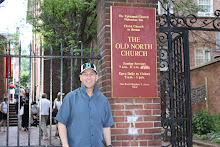Because it speaks against anti-intellectualism, which has certainly been a problem in the C of C. I have heard come out of the mouths of our people some of the exact quotes Byers/McKnight mentions as prevalent among anti-intellectuals. On the other hand, I virtually never hear academics and intellectuals speak badly of the average person in the pew, because they know that their education or erudition does not justify such attitudes; but anti-intellectuals often accuse the educated of thinking that they are better than the uneducated. So, you end up with the uneducated being more often prejudiced against the educated than the other way around, all because the uneducated feel like the educated are slighting them! Anti-intellectualism ends up hurting the church more than helping, just like hypercriticism against leaders or teachers does more harm than good. Ultimately, I think all this comes down to self-esteem. The uneducated feel deprived, or intimidated, or jealous, or denigrated by the educated, and so a diminished self-esteem causes them to respond negatively to intellectuals, when the poor intellectual was just trying to learn more and then to help others discover the things they had learned! True intellectuals don’t look down on the uneducated and ignorant, because they know how ignorant they themselves are about so many things.
Wednesday, August 10, 2011
Deposing Anti-Intellectualism
In a recent blog entitled "Beyond Cynicism 4," Scot McKnight continues his discussion of Andrew Byers' book Faith Without Illusions. I then mentioned in an email to our church that I especially liked this fourth entry in McKnight's series. Rhandi Tyssen, one of our members, wrote back and asked why I liked this one best. Here is my response:
Subscribe to:
Post Comments (Atom)

No comments:
Post a Comment